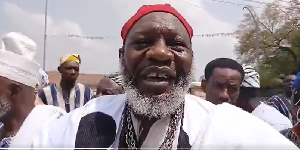If you're a music enthusiast or have scrolled through social media in the past week, you might have caught wind of one of the most electrifying rap feuds of the past decade.
American rap giant Kendrick Lamar incurred the wrath of fellow rapper Drake, leading to a battle of lyrics between the duo.
While a detailed account of the events would be extensive, our focus here is not on the lyrical warfare or the artistic showdown.
Instead, we delve into a frequently overlooked aspect of such a spectacle: the economic ripple effect on the masses.
The feud was more than an exchange of diss tracks full of damning accusations. At its core, it was a financial phenomenon.
Right from the first track, streaming services experienced a surge. Consider the YouTube streams alone. Of the eight tracks released by the duelling artists, five debuted on YouTube, amassing a staggering 137 million in all.
The most iconic song of the eight, 'Not Like Us' broke a Spotify record that Drizzy once claimed as his own.
According to ChartData, the fiery diss track set the record for the biggest single-day streams of a rap song, with 12 million streams on it's first day alone.
The song currently has over 30 million plays on YouTube.
But the story doesn't end there. Kendrick Lamar took an unprecedented step by waiving YouTube copyright claims on his tracks, allowing content creators to feature his music in full without the threat of demonetization from YouTube.
Not just YouTube, creators on other platforms such as TikTok and others amassed tons of engagements from their takes on the ongoing feud, also generating revenue for them.
Moreover, acclaimed sound engineer and producer Metro Boomin offered a golden opportunity to underground artists with a free beat contest on a sound he developed for a diss against Drake. The prize? A professional beat and a cash reward, attracting over a hundred entries from rappers worldwide.
So, while the debate remains on who actually won the beef, everyone on all sides actually won; platforms like YouTube, Spotify, and Apple Music witnessed millions of streams.
The artists themselves enjoyed a surge in streams and the accompanying financial benefits.
Listeners enjoyed a series of back-to-back songs from their favourite rappers.
Content creators, analysts, and interpreters saw their usual viewership numbers soar.
Influencers across TikTok, Twitter, and YouTube capitalised on the trend, translating views into revenue.
Bloggers, comedians, and mainstream media journalists also joined the fray, each contributing to the narrative.
A restaurant Kendrick Lamar mentioned in one of his tracks, New Ho King Chinese restaurant in Toronto, Canada, saw a spike in visits.
Even brand advertisers saw a spike in engagement, seizing the moment to maximise exposure.
In essence, the rap feud, no matter how messy it eventually became, was an unexpected economic engine for all involved.
This simply illustrates the power of music to move minds and money to the right places.
ID/BB
Watch the latest episode of E-Forum here
Ghana’s leading digital news platform, GhanaWeb, in conjunction with the Korle-Bu Teaching Hospital, is embarking on an aggressive campaign which is geared towards ensuring that parliament passes comprehensive legislation to guide organ harvesting, organ donation, and organ transplantation in the country.
Entertainment of Friday, 10 May 2024
Source: www.ghanaweb.com













